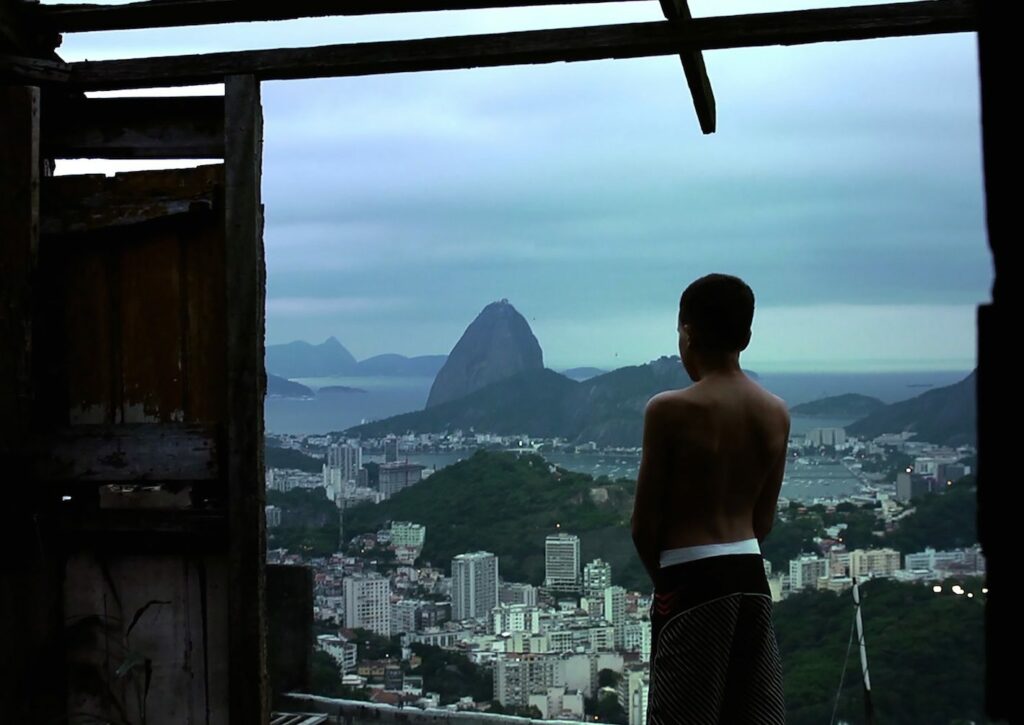Cinemateca Portuguesa, Casa Independente, Lisboa, Portugal
10 Dec 2016 - 15 Dec 2016

EGEAC – Galerias Municipais/AFRICA.CONT and the Associação Cultural Janela Indiscreta, responsible for organizing Queer Lisboa and Queer Porto film festivals, present “Afro-Brazilian Experiences on Screen” at Cinemateca Portuguesa and Casa Independente, with an extensive film program, an installation, debates and the presence of international guests. From the 10th to the 15th December this program suggests a reading of the specific trajectory of both the depiction and representativeness of the African-Brazilian community in Brazilian cinema.
To frame the issue of how African-Brazilians have been historically represented in Brazilian cinema we chose as the first title to screen in the program the documentary Abolição (1988), directed by Zózimo Bulbul, an actor, filmmaker and activist who dedicated his life to asserting the importance of Afro-Brazilians in the history of Brazil. The history of the depiction and representativeness of black men and women in Brazilian popular culture is also central in the documentary A Negação do Brasil (2000), by Joel Zito Araújo, in which he reflects on the importance of the presence of black men and women in Brazilian soap opera for creating a sense of belonging.
One of the focuses of the program “Afro-Brazilian Experiences on Screen” is on young filmmakers whose works provide us critical readings on given ethnic and racial identities in the Brazilian cultural and social context. Collectives such as Movimento Tela Preta, Mulheres de Pedra or Surto & Deslumbramento are part of this program.
Also at Cinemateca Portuguesa takes place the short film program “New Female Voices in Afro-Brazilian Cinema”, which highlights recent works by female directors who have subverted notions of race, sexuality and gender, such as Viviane Ferreira, who will be in Lisbon to present two of her short films: O Dia de Jerusa (2014) and Mumbi7Cenas Pós Burkina (2010).
Besides Cinemateca Portuguesa, the program also extends to Casa Independente, on the 11th December, with a program on the spiritual side of African-Brazilian culture and the central role that religions like Candomblé and Umbanda have in creating identities and establishing spaces of freedom for African-Brazilian communities, namely by hosting non-heteronormative sexualities.
At Casa Independente will also take place the debate “Queer Sexualities, Identity, and Gender in Candomblé and Umbanda”, with the presence of researchers Clara Saraiva (Centre for Comparative Studies of University of Lisbon and CRIA – Network Centre for Research in Anthropology), Karla Bessa (Professor at Universidade Estadual de Campinas and researcher in the areas of Political History, Cultural Studies, Gender Studies, Sexuality, Queer Theory and Cinema Studies), and two representatives in Portugal of Candomblé and Umbanda. After the debate, there will be a DJ set by Mário Valente.
The second debate of this program takes place at Sala Luís de Pina at Cinemateca Portuguesa, on the 14th December, under the theme of “Queer Readings of Afro-Brazilian Cinema”, with the presence of Viviane Ferreira and Karla Bessa.
The Cinema Novo movement is represented at the official opening night with the screening of the first feature film directed by Glauber Rocha, Barravento (1962), one of the most influential filmmakers from Brazil. And throughout the whole program we will also present the video installation A Mina dos Vagalumes (2015), by Raphaël Grisey (who will be in Portugal), at the Sala dos Cupidos at Cinemateca Portuguesa.
.